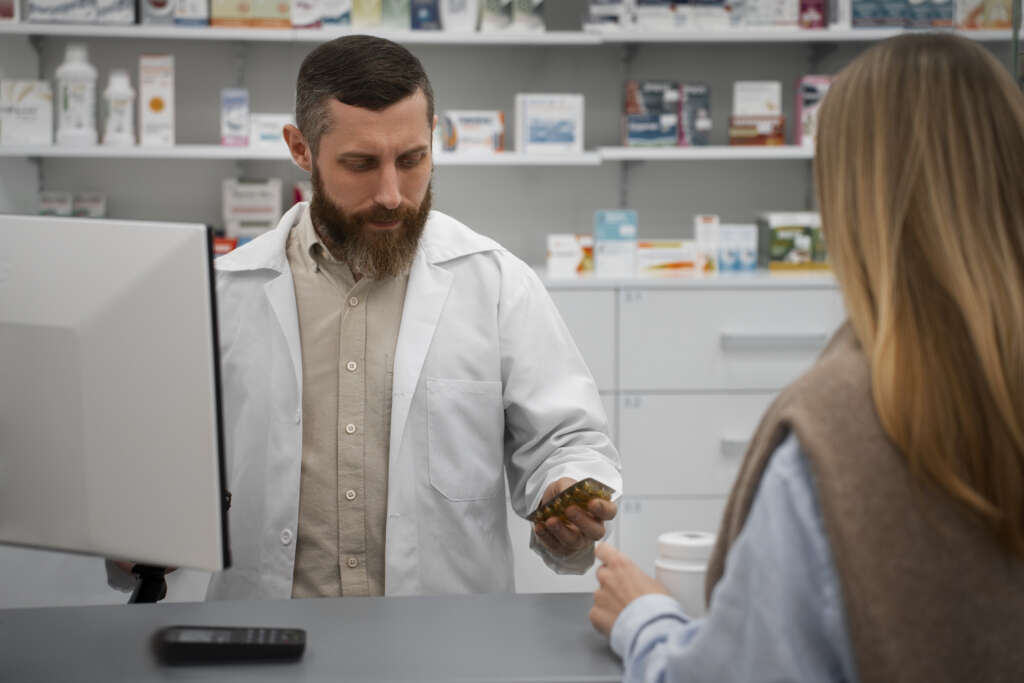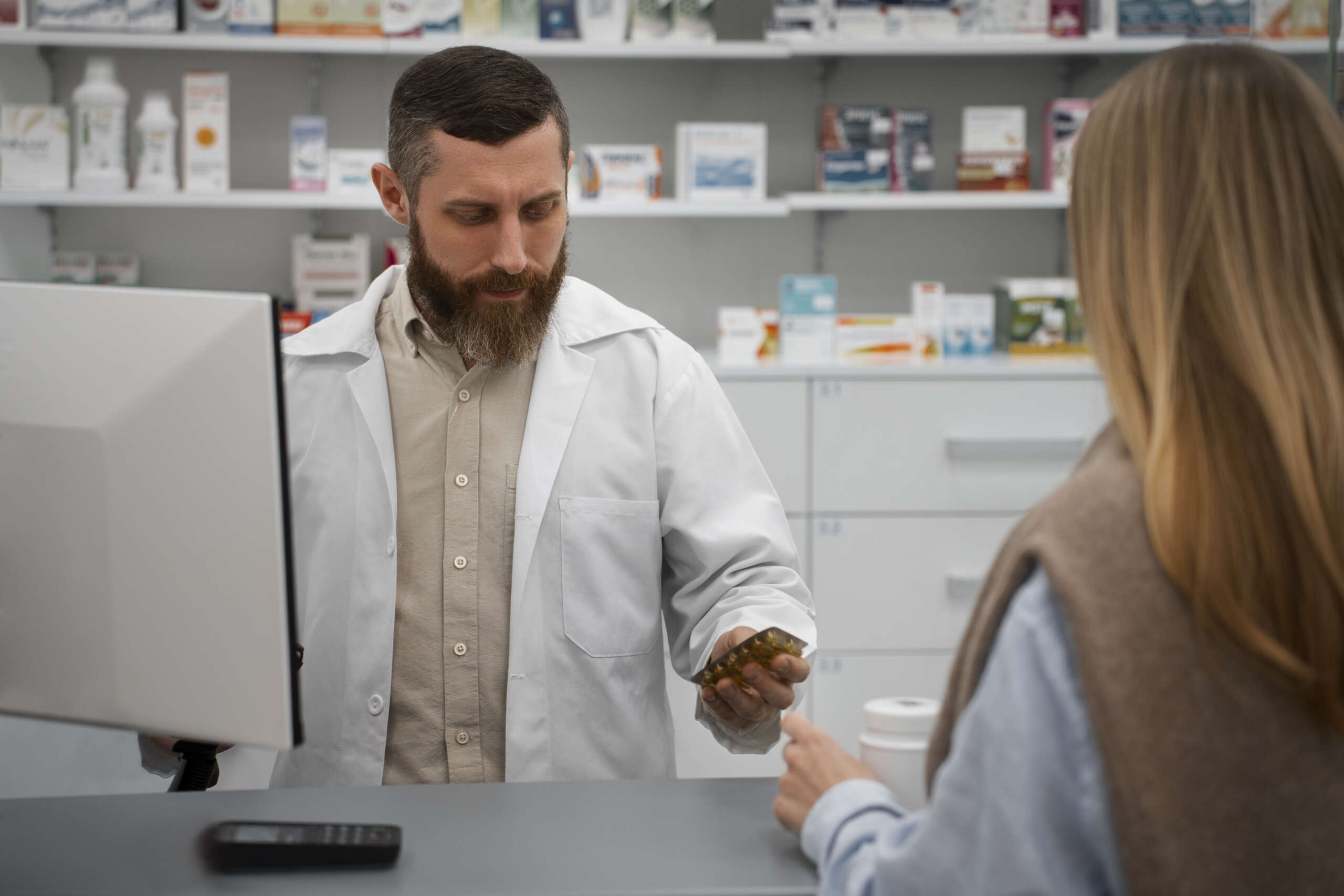Our pharmacy offers a wide range of OTC products, including pain relievers, allergy medications, digestive aids, vitamins, and first-aid supplies. Our pharmacists are available to guide you in selecting the right products for your needs, ensuring safe and effective self-care.




Categories of OTC Products
OTC products can be classified into several categories based on their use and application:
1. Pain Relief and Fever Management
- Examples: Acetaminophen, Ibuprofen, Aspirin, Naproxen.
- Uses: Relief from headaches, muscle pain, arthritis, and fever reduction.
2. Cough, Cold, and Allergy Medications
- Examples: Antihistamines (Loratadine, Cetirizine), Decongestants (Pseudoephedrine), Cough suppressants (Dextromethorphan), Expectorants (Guaifenesin).
- Uses: Managing symptoms of colds, allergies, and respiratory issues.
3. Digestive Health
- Examples: Antacids (Tums, Rolaids), Proton Pump Inhibitors (Omeprazole), Laxatives (Polyethylene Glycol, Bisacodyl), Antidiarrheals (Loperamide).
- Uses: Treatment of indigestion, heartburn, constipation, and diarrhea.
4. Vitamins and Supplements
- Examples: Multivitamins, Vitamin D, Calcium, Omega-3 fatty acids, Probiotics.
- Uses: Support general health, immune function, and specific nutrient deficiencies.
5. Skin and Wound Care
- Examples: Antiseptics (Hydrogen Peroxide), Antibiotic Ointments (Neosporin), Hydrocortisone Creams.
- Uses: Treating minor cuts, burns, rashes, and skin irritations.
6. Smoking Cessation Aids
- Examples: Nicotine Patches, Nicotine Gum, Nicotine Lozenges.
- Uses: Assisting individuals in quitting smoking.
7. Sleep Aids
- Examples: Diphenhydramine, Melatonin, Valerian Root.
- Uses: Treating occasional insomnia and promoting better sleep.
8. Women’s Health
- Examples: Pregnancy Tests, Vaginal Antifungals, Menstrual Pain Relievers.
- Uses: Addressing reproductive health and menstrual-related concerns.
9. First Aid Supplies
- Examples: Bandages, Gauze, Thermometers, Ice Packs.
- Uses: Basic wound care and first-response emergencies.
10. Other Specialized OTCs
- Examples: Eye drops, Earwax removal kits, Antifungal treatments, Hair loss treatments.
- Uses: Addressing specific issues like dry eyes, ear hygiene, or hair regrowth.

Role of Pharmacies in OTC Services
Pharmacies provide more than just access to OTC products; they offer value-added services to enhance customer care:
1. Pharmacist Consultation
- Guidance on choosing the right OTC medication.
- Advice on interactions between OTCs and prescription medications.
- Assistance with dosage and proper usage.
2. Health Screening
- Some pharmacies offer blood pressure checks, cholesterol screenings, and glucose monitoring, directing customers to suitable OTC products.
3. Educational Support
- Brochures, workshops, or seminars on health topics.
- Information on disease prevention and self-care using OTC products.
4. Customization
- Providing individualized care, such as pill packaging services for those taking multiple OTCs or prescriptions.
5. Specialty OTC Services
- Niche products like gluten-free vitamins or plant-based supplements.
- Custom compounding for non-prescription items when needed.
Advantages of OTC Products in Pharmacies
Convenience: Wide range of options available under one roof.
Accessibility: Available without a prescription for immediate care.
Cost-Effective: More affordable than many prescription medications.
Empowerment: Encourages self-care and preventive health.

